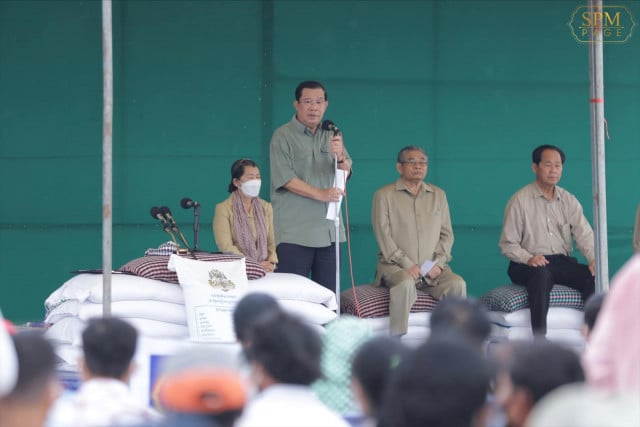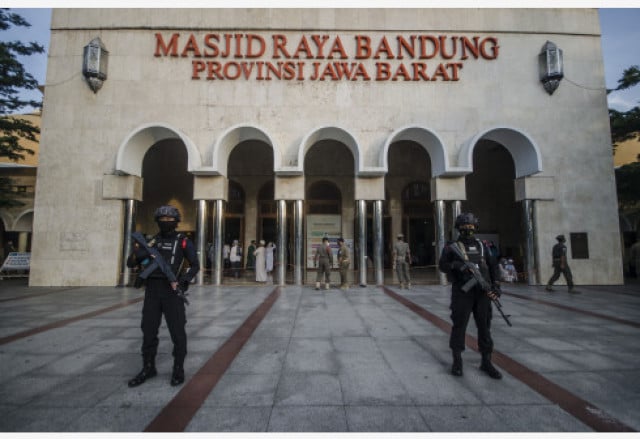Scams Need Stricter Law Enforcement: Analysts

- By Meng Seavmey
- March 29, 2024 11:55 AM
PHNOM PENH – Authorities have been advised to study old money scams to build awareness, particularly concerning high-status individuals.
Close attention should be paid to financial or investment workshops or projects, social analyst San Chey says.
Fraudsters must be punished by quick, strict law enforcement, especially in forms of investments, stock and securities, and real estate, he urged authorities.
Yong Kim Eng, president of the People Center for Development and Peace, said embezzlement was an increasing concern, because cases were often caused by powerful and popular individuals.
Kim Eng said when such things happened, authorities either denied involvement or claimed that the perpetrators had no legal permit or license for their projects.
"It's more like them defending themselves, rather than finding a solution to get the money back for the victims. The question is, how did those fraudsters embezzle such big amount of money so easily, and where did all the money go?” he said.
Kim Eng suggested that ministries such as the Ministry of Economy and Finance, assess information about the loss of money, especially how and why the money was spent.
Lack of knowledge or lack of authorization?
Pa Chanroeun, president of the Cambodian Institute for Democracy, said there had been cases of people using their title of oknha who seemed to have pictures or connections with high-status individuals to get money from citizens who assumed those people could be trusted.
Three major problems prevented improvements in tackling fraud, Chanroeun said. These include the limited knowledge of people on financial literacy and investments, ineffective law enforcement in investment-related disputes, and the lack of justice for investors.
San Chey, executive director of the Affiliated Network for Social Accountability, said there were steps fraudsters could take to get money, particularly through workshops or courses on investments.
“They first made people love money and shared the ways to make money easily, but they used uncertain business plans,” they said.
“Then, they lured people by teaching them how to get rich quickly. Lastly, they provided options for investments using the money those people might borrow from a bank or relatives or from selling properties.”
“Another strategy was using their high status to have influence on people—to gain trust from people, Some powerful people still use their title for getting money from those without power.”
Chey claimed that such actions — leading to scamming — have happened in several cases but authorities had not yet learned to consider approaches to tackle the issues.”
The analysts agreed that people would lose trust in the legal system if the law in this area was weak. There would also be economic disadvantages because people would be afraid to invest or spend their money.
Responsible ministries should be quick to find compensation or the money to be returned to the victims and, especially, in cracking down on fraudsters.
This would ensure that investors were protected by the law if their investment loses value or is lost. The public must be encouraged to learn more about financial literacy to avoid such scams, they said.
Touch Sokhak, spokesperson for the Ministry of Interior, agreed — without providing figures — that fraud and online scamming is a challenging matter and it has been a hot topic in Cambodia and in other countries.
“Tracking down cybercrimes and online scams is challenging for developing countries where the criminals can be ahead of the police because of the technology from abroad,” he said.
The ministry’s Department of Anti-Cybercrimes and the Digital Department, however, always followed the use of technology and social media to gather information and characterize the targets to track down cybercrimes in a timely manner with legal procedures.
They are also building capacity among officials and advancing in the use of digital technologies and modern materials to follow up with criminals, the spokesperson said, adding they always cooperate with the victims for timely operations.
Cambodianess did not receive any comment from the Ministry of Justice’s spokesperson by press time.
Embezzlement has been discussed among the public, especially on social media, after a scandal involving Cambodian Investment Capital Partners (CIC) which who was accused of embezzlement by its investors.
Mengly Jandy Quach, a medical doctor, entrepreneur and philanthropist, spoke of his losses on Mar. 24 on his Facebook page.
He lost $300,000 invested in the company and said there must be an investigation because many investors claimed they had not received interest owed since last year.
Later, CIC issued a press release update. “The CIC Partners case is not a fraud case as alleged through some social media,” it said.
“A liquidity crisis has been affected by the global economic crisis and a lack of readiness from the company.”
Social and economic commentator Kanitha discussed the matter earlier along with evidence she had gathered on her Facebook page, Kanitha Show. She set out a possible scenario in which there would be no solution if CIC announced themselves bankrupt.
Khim Sok Heng, one of board members of CIC, released a video of himself in response.
Sok Heng said the company is operating as usual. It had not gone bankrupt though money was tight. He said he would not run away from the problems and they would be solved.
The Securities and Exchange Regulator of Cambodia (SERC) said on Mar. 25 that CIC is a legal, registered investment company. Under the regulator’s advice, the company was gathering active assets worth about 90 percent of the amount SERC had advised them.
This aimed to secure the shares of investors in line with the law, though the company faced problems.
On the same day, the Bar Association of the Kingdom of Cambodia announced a working group to help resolve the disputes between investors and the CIC.
It said there had been many similar cases in which fraudsters made up projects to collect money “for investments”.
The association’s lawyers are to consult, review, and organize legal documents and evidence and file lawsuits or defend the investors. The work would be free.
The case was compared by social media users to the demoted oknha Leng Channa whom the Siem Reap Municipal Court accused of fraud, non-performing trade and money laundering early this month.
Justice Ministry’s spokesperson Chin Malin said the CIC case is not the same as Leng Channa, because the CIC is registered and has its own board members and authorities to check the work.
“That the authorities are not doing anything on the case is false,” Malin said on his Facebook post.
Institutions in charge of the problem had paid high attention to this problem, and had taken a step-by-step resolution, protecting the investors in line with the law.
In 2021, a foreign director embezzled about $30 million from GOLDFX Investment (GFX Investment). The company also held an SECC license.















